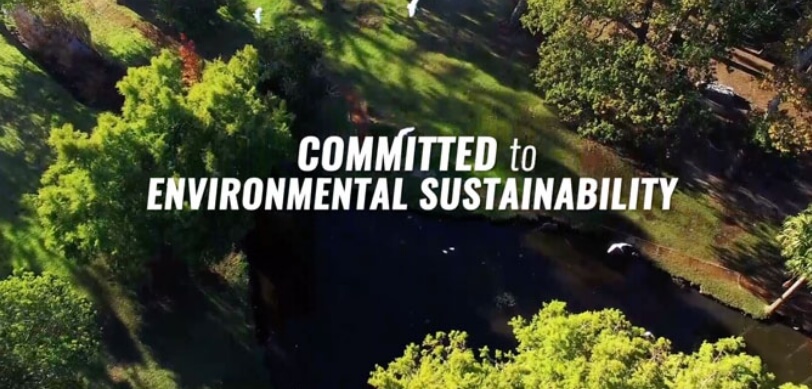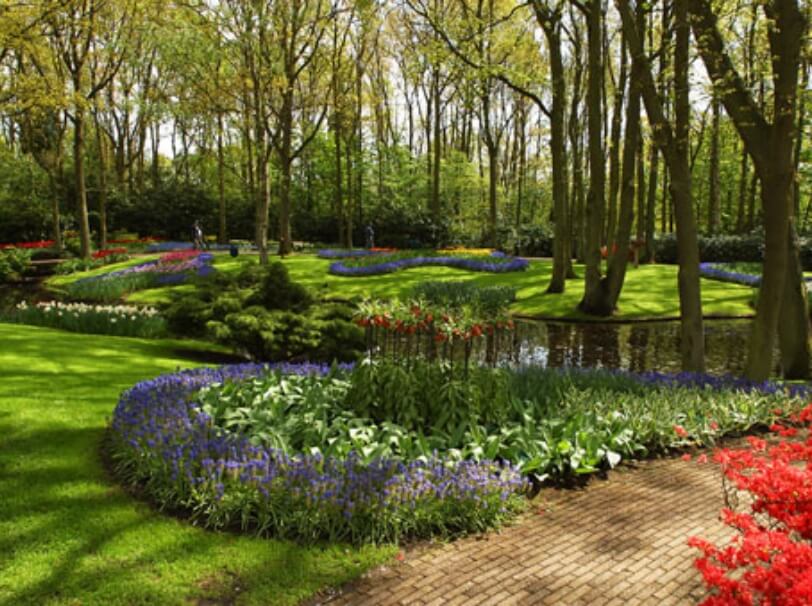Environmental Values
Committed to Environmental
Sustainability
Sun Gro Horticulture is committed to environmental sustainability. Our superior planting mixes and amendments promote planting success – supporting growers, gardeners, and green spaces nationwide. As an industry leader in sustainable Canadian Sphagnum peat moss, we employ the newest research, developments, and management practices to ensure this valuable natural resource remains plentiful and renewable. Sun Gro’s environmental values are further anchored by respected third-party certifications we hold to verify our commitment to sustainable practices and product integrity.

Millions of beautifying plants are nurtured in planting products from
Sun Gro each year, making our green spaces – gardens, landscapes,
parks, patios, and conservatories – more vibrant and prosperous.

Improving Green Spaces
Millions of beautifying plants are nurtured in Sun Gro planting products each year, making our green spaces – gardens, landscapes, parks, patios, and conservatories – more vibrant and prosperous. This positively impacts our environment, health and wellbeing, and homes.
Plant-filled green spaces improve our environment by cleaning the air1, reducing noise pollution2, reducing soil erosion3, creating food and shelter for wildlife4, and absorbing rainwater5. They are essential for beautifying rural and urban communities and sustaining the natural environment.
Gardens and green spaces are life enriching and encourage personal wellness6. They are fundamental to green living and the maintenance of active, outdoor lifestyles. They bring birds and pollinators to our homes7, reduce stress8, reduce crime9, and improve our overall mental health10. Gardens even help us eat better. Research has shown that vegetable gardens help families and children eat healthier, more vegetable-filled diets11.
Plants and the curb appeal they create also help homeowners with the bottom line. In addition to creating privacy and reducing noise12, good landscaping can add up to 15% in value to a residential home13.

Sustaining Canadian Sphagnum Peatlands
As the leader in sustainable Canadian Sphagnum peat moss resources, Sun Gro endorses and supports the Canadian Sphagnum Peat Moss Association’s (super: CSPMA logo) definition of sustainable peatland management as the “balanced stewardship of the environmental, social and economic values of Canada’s renewable peatland resource.”
In Canada, there are 281 million acres (113.6 million hectares), or around 25%, of the entire world’s peatlands. Less than 0.03% of Canadian peatlands are carefully managed to help grow millions of potted plants for our gardens and beautify our environment. Environmentally responsible peat moss industries such as ours work to restore peat bogs ensuring they return as valuable functioning wetlands for years to come. Sun Gro actively supports university, governmental and industry research to advance peat bog restoration, promoting good stewardship of this valuable resource.
Investing in Sustainable Certifications
To further establish Sun Gro’s commitment to sustainability, all of our Canadian peat production sites are Veriflora Certified for environmental sustainability and product integrity. Veriflora is a seed-to-store agricultural sustainability certification and eco-labeling program highly revered in the horticultural industries. A Veriflora certification establishes: 1. Environmental Sustainability; 2. Social and Economic Sustainability; and 3. Product Integrity. The Veriflora program is managed by Scientific Certification Systems (SCS), a neutral, third-party entity with no vested interest in the companies they certify, so consumers can count on the integrity of the certification.
Sun Gro Horticulture serves organic growers and gardeners by providing superior mixes and amendments approved for organic gardening. Many of our professional and retail products are listed by the Organic Materials Review Institute (OMRI) organic gardening. This third-party, nonprofit organization determines what products can be used under the USDA National Organic Program. OMRI listed® products must contain quality materials appropriate for use by certified organic farmers as well as home gardeners that grow organically. A review process is required to promote products with the OMRI Listed Seal of assurance. This extensive review process verifies that products are in complete compliance with organic standards.
Some Sun Gro mixes are certified by The Mulch and Soil Council (MSC). This certification assures product integrity. It means that products have been verified to match label claims. According to the MCS, this means that “what is on the bag is what is in the bag.”

Citations
1. Air pollution removal by urban trees and shrubs in the United States DJ Nowak. DE Crane, JC Stevens. Urban Forestry & Urban Greening (2006)
2. Noise reduction by vegetation and ground. D Aylor. The Journal of the Acoustical Society of America (1972)
3. Soil-erosion and Runoff Prevention by Plant Covers. A Review. D Zuazo, V.H. & Rodríguez Pleguezuelo, C.R. Agron. Sustainable Development (2008)
4. Science and the Garden. DS Ingram, D Vince-Prue, PJ Gregory (2016)
5. Rain gardens: Sustainable Landscaping for a Beautiful Yard and a Healthy World. LM Steiner, RW Domm (2012)
6. Restorative Commons: Creating Health and Well-Being through Urban Landscapes. L Campbell, A Wiesen (2011)
7. The Strengths and Weaknesses of Lists of Garden Plants to Help Pollinators. M Garbuzov, FLW Ratnieks. BioScience (2014)
8. Green Space and Stress: Evidence from Cortisol Measures in Deprived Urban Communities. JJ Roe, CW Thompson, PA Aspinall, MJ Brewer. Int. J. Environ. Res. Public Health (2013)
9. Environment and Crime in the Inner City Does Vegetation Reduce Crime? FE Kuo, WC Sullivan. Environment and Behavior (2001)
10. Forests, Trees and Human Health and Well-Being: Introduction. K Nilsson, M Sangster, CC Konijnendijk. Forests, Trees and Human Health (2011)
11. Can a Community-Based Intervention Improve the Home Food Environment? Parental Perspectives of the Influence of the Delicious and Nutritious Garden. S. Heim et al. Journal of Nutrition Education and Behavior (2011)
13. Landscaping and House Values: An Empirical Investigation. FD Rosiers, M Theriault, Y Kestens, P Villeneuve. The Journal of Real Estate Research (2002)
